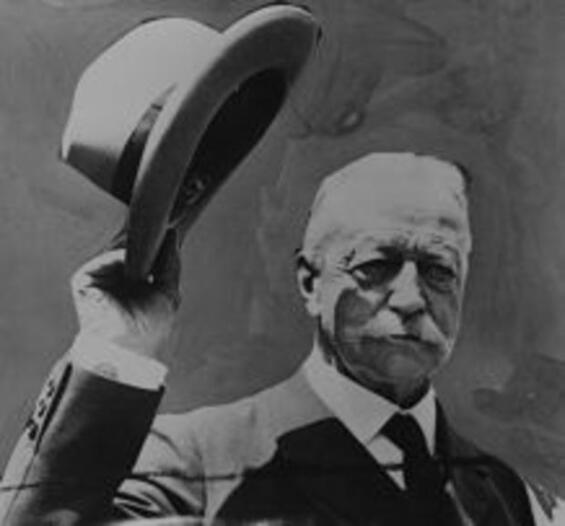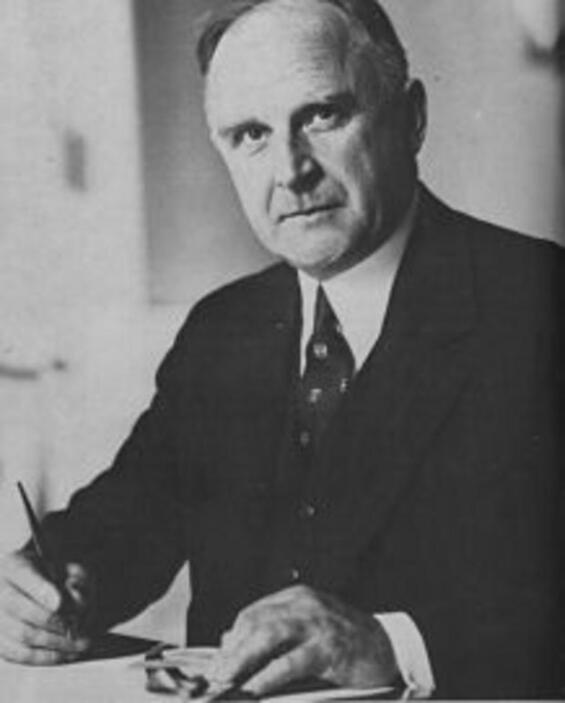Overview

Harvard University President, A. Lawrence Lowell
After the death sentence was imposed, many asked Governor Fuller to appoint an impartial commission to review the case. One such request was made by Dartmouth College Professor James P. Richardson in a letter dated April 19, 1927. Professor Richardson wrote of Judge Thayer:
I had a personal conversation with him in Hanover [in 1924 or 1925] in which it was very evident that Judge Thayer regarded [Sacco and Vanzetti] with a feeling which can only be described as abhorrence.
Governor Fuller appointed a Committee of three to review the evidence and the conduct of the trial. Harvard University President A. Lawrence Lowell, Massachusetts Institute of Technology President Samuel W. Stratton, and retired state probate court judge Robert A. Grant.
The Committee's report, dated July 27, 1927, was made public by the Governor on August 6, 1927. The report concluded that the trial was conducted fairly and that Sacco and Vanzetti were guilty beyond a reasonable doubt. Of Judge Thayer, the Committee determined:
[T]hat the judge was indiscreet in conversations with outsiders during the trial. He ought not to have talked about the case off the bench, and doing so was a grave breach of official decorum. . . [W]e believe that such indiscretions in conversation did not affect his conduct at the trial or the opinions of the jury . . .
Governor Fuller's decision

Governor Alvan T. Fuller
On August 3, 1927, Governor Fuller denied the appeal for clemency. He wrote, "I find no sufficient justification of executive intervention. I believe, with the jury, that Sacco and Vanzetti were guilty and that they had a fair trial. I furthermore believe that there was no justifiable reason for giving them a new trial."
Following this decision, Sacco and Vanzetti each wrote letters that were published in The New York Times on August 5, 1927. Sacco's letter stated in part:
We are proud of death and fall as all the anarchists fall. It is up to you now, brothers, comrades . . . you are the only ones that can save us, because we have never had faith in the Governor. For we have always known that Governor Fuller, Thayer, and Katzmann are the murderers.
Final appeals
After learning of Governor Fuller's decision, defense attorneys Thompson and Ehrmann retired from the case, in the hopes that new counsel might achieve a better result. The Sacco and Vanzetti Defense Committee retained respected Boston attorney Arthur D. Hill to handle the final appeals. Hill filed a motion to revoke the sentence and allow a new trial on the basis of Judge Thayer's alleged prejudice against the defendants; he included many of the affidavits that had been presented to the Lowell Committee. Hill also asked that another judge be assigned to hear the motion so that Judge Thayer would not assess his own prejudice. This request was denied, and Judge Thayer proceeded to hear the motion. On August 8, 1927, he denied the motion to revoke sentence and allow a new trial.
On August 19, 1927, the Supreme Judicial Court affirmed Judge Thayer's denial. The court ruled that new evidence offered by the defendants about Judge Thayer's bias was too late for the court to consider, and that the existing system of criminal procedure amply protected defendants charged in capital cases. The defendants' last minute appeals to the United States Supreme Court also failed.
Contact
Phone
Hours: Mon. - Fri., 8:30 a.m. - 4:30 p.m.
Hours: Mon. - Fri., 8:30 a.m. - 4:30 p.m.
Hours: Mon.-Fri. 8:30 a.m.- 4:30 p.m.